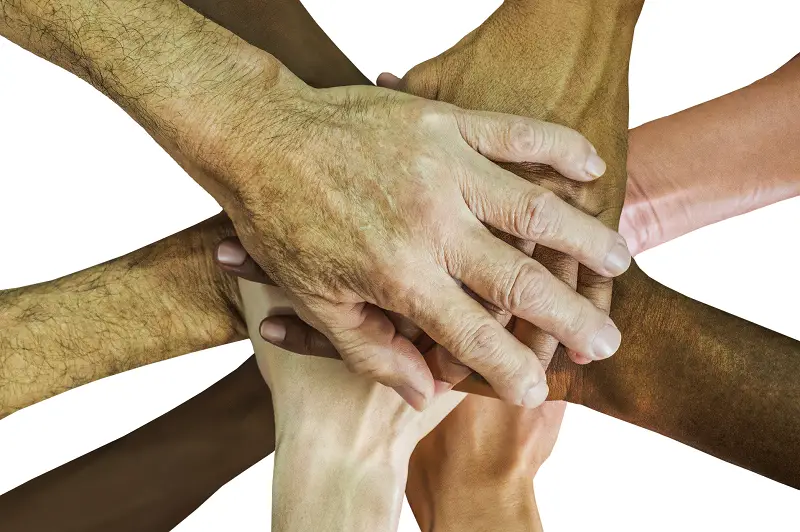
6 ways to meet new people and find support if you’re disabled
If you’re disabled, loneliness can be a big problem. 67% of disabled people have felt lonely in the past year, according to a survey by Scope. Of the 1,004 people it asked, 13% had under half an hour of interaction with someone else on a typical day. But it doesn’t have to be that way. SeniorsAdvice, which sees the effects of isolation on older disabled people all the time, has put together 6 ways you can combat loneliness by meeting new people and finding support.
As any person with disabilities can attest to, there are so many challenges that come with being disabled. Even the simplest of everyday activities can be tricky. However, one of the biggest difficulties for many is loneliness.
While loneliness is an epidemic worldwide, it is even more prevalent among disabled individuals. Being unable to get out of the house, socialise and do the things you love, can be incredibly isolating. But there are ways to beat this loneliness – read on for six simple solutions.
1. Utilise technology
Technology is a great way to stay connected with the people we love, especially if friends and family live far away. Utilise video communication software, such as Skype, WhatsApp or Facebook messenger, which can be used on your computer or phone for free.
You can also use these services to connect with support groups and local charities – more on these below.
2. Download a friendship app
Most people know the impact that dating apps have had on many people’s love lives. But did you know that there are also dedicated friendship apps for those not looking for anything romantic? They’re a great way to meet someone with similar interests to you, and you don’t even need to leave the house in order to get connected.
If you’re looking for more than friendship, there are a number of dedicated dating sites for disabled people, too. Disability Horizons’ article on disabled dating sites rounds up the best.
3. Get a pet

Animals truly are man’s (or women’s) best friend and be a great way to deal with loneliness in your everyday life – we know that older people with dementia use dogs to minimise loneliness. There are a lot of different options – cats, dogs, rabbits, hamsters, guinea pigs, fish. The list goes on. It’s important to think about what will suit you and your abilities best. You’ll need to take care of your pet as much as it will be there for you.
Dogs will need walking, which could encourage you to get out of the house, but only if you can. Cats, on the other hand, are more independent, so might be a better choice if you’re unable to leave the house. Any animal that requires a cage will need it tending to, so make sure you can do so before you decide. The RSPCA has a number of guides on how to care for a range of different pets.
Animals can be more than just pets too – they can offer assistance. Service dogs can be trained to help with everyday tasks or help you out and about, especially if you’re visually impaired. See whether you’re eligible for help from a dog by visiting Assistance Dogs UK.
A pet may not be the same as a human, but they can provide both companionship and care.
4. Volunteer
Volunteering is a such a great way to give back and meet friends while you do it. Disability Horizons member Mark Wilson can attest to that – read his article on the value of volunteering if you’re disabled.
The great thing about most volunteer organisations is that they have special programs in place specifically for disabled people. Even if you think you may be unable to perform the same tasks as other volunteers, they’re likely to have programs that can meet your needs.
Do-it.org is a national organisation that can help you to find volunteering opportunities near you.
5. Join a support group

The prevalence of loneliness among elderly and disabled people has actually helped facilitate a growing number of support groups. It is a great way to talk about your concerns and make connections with people who are dealing with the same or similar issues. They can also provide advice and point you in the right direction of services that you would benefit from.
Ableize, Disability Rights UK and Scope all list support groups across the UK to help you find one near you. Ableize lists groups by specific needs and disabilities, Scope by types of people (for example disabled teens or adults) and Disability Rights by location.
6. Go to a day centre
Day centres are also a great option. Different from support groups, they focus on providing daily activities and a way to meet others. Another benefit it that many day centres also provide transportation to and from the centre, making it easier to get out of the house and start interacting with others.
You can use a tool on the Government’s website to help you find a day centre near you by simply entering your postcode.
It is completely normal to feel alone or isolated when living with a disability. But as this list shows, there are ways that you can beat it and enjoy a better quality of life. These tips may be small and simple, but they can have a great impact on your life moving forward.
By Lori Howard
More on Disability Horizons…
- The benefits of online therapy if you have a disability
- 10 fun accessible game and activity apps for disabled people
- Disability and online dating: should you tell your date you have a disability?
- Find innovative solutions to everyday challenges on the Disability Horizons Shop
Have you found a way to find support and meet new people? Share your tips with our community of readers by leaving your comments below, messaging us on Facebook, or tweeting us @DHorizons.
Originally posted on 26/10/2018 @ 11:29 am
Hi
I cant get the link Disability Rights UK to work.
Maybe you have to be a member of Disability Rights UK for it to work?